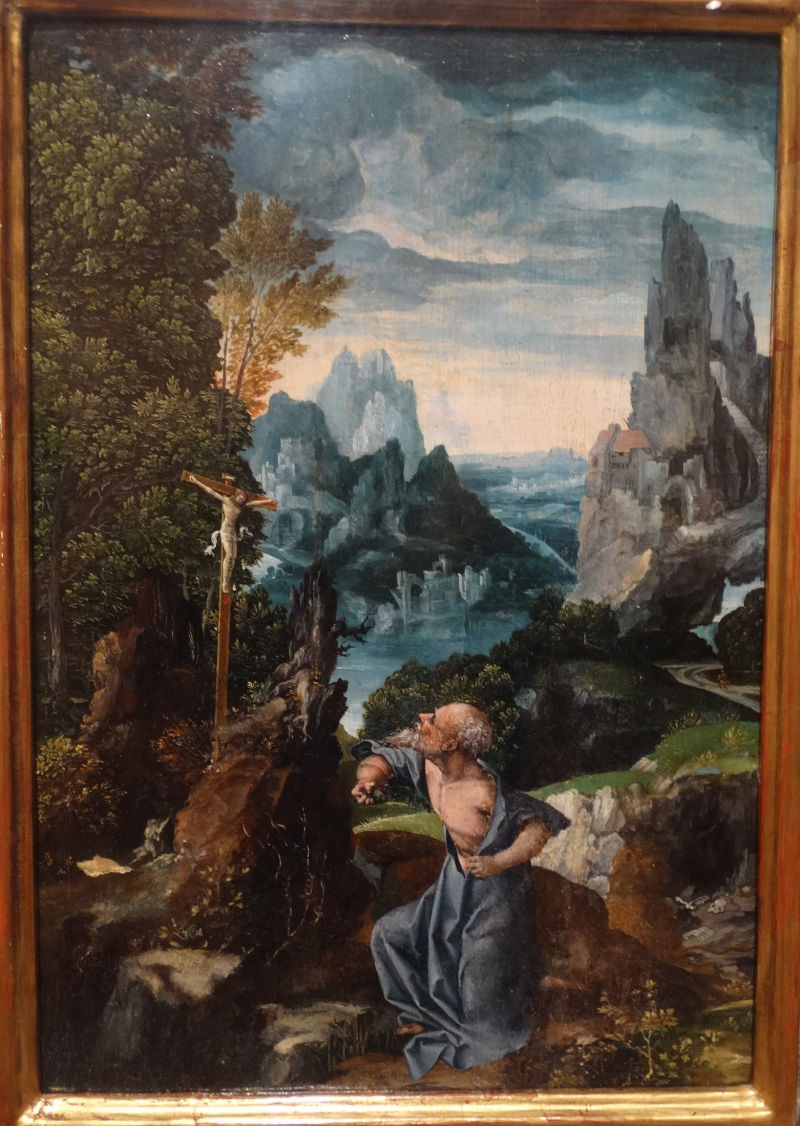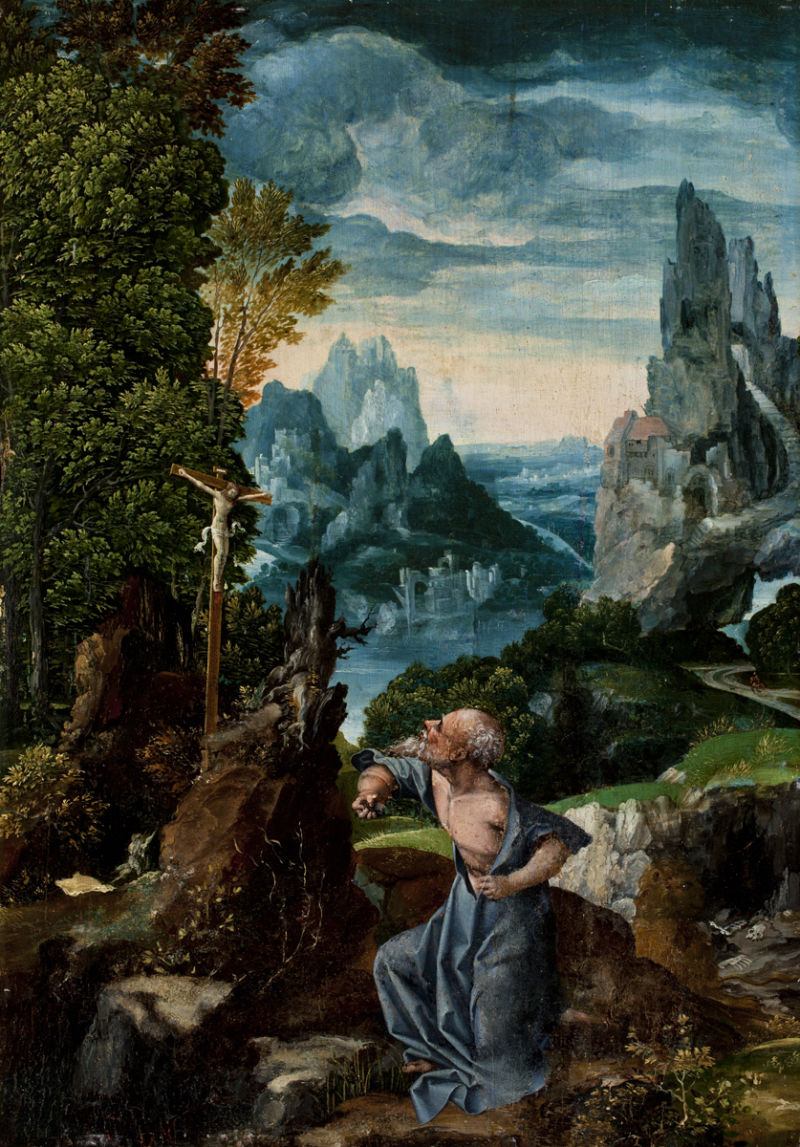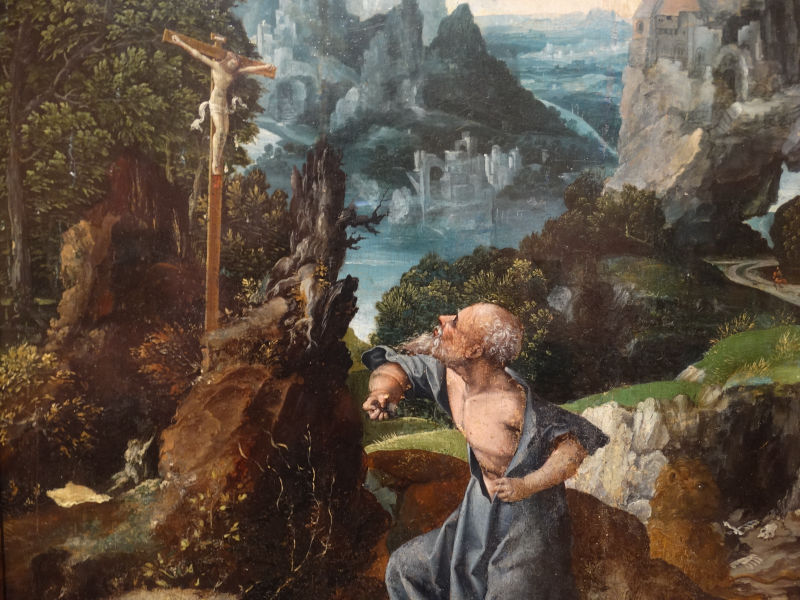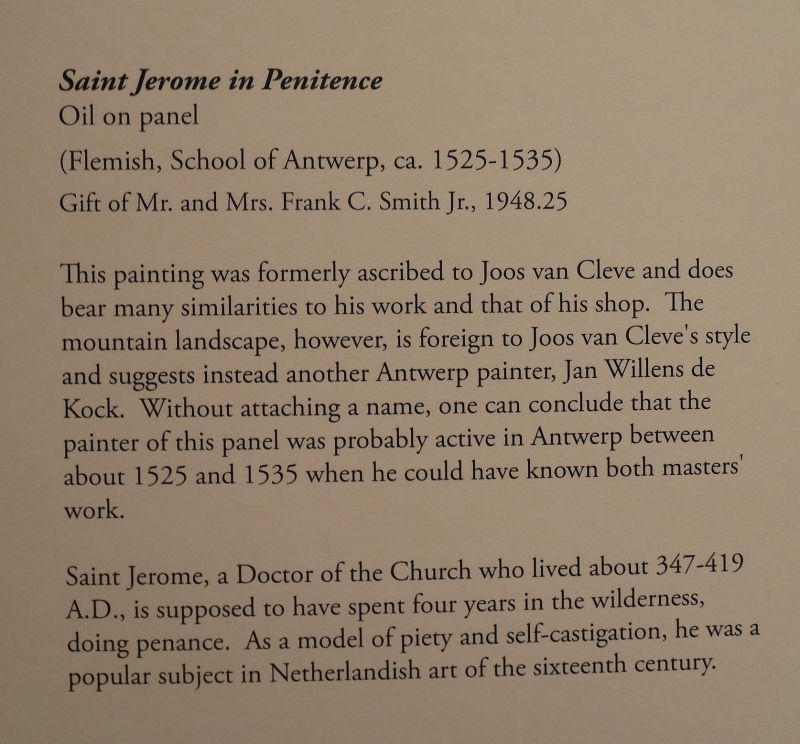School of Antwerp, about (1525-1535),
was a school of artists active in Antwerp, first during the 16th century when the city was the economic center of the Low Countries, and then during the 17th century when it became the artistic stronghold of the Flemish Baroque under Peter Paul Rubens. Antwerp took over from Bruges as the main trading and commercial center of the Low Countries around 1500. Painters, artists and craftsmen joined the Guild of Saint Luke, which educated apprentices and guaranteed quality.
The first school of artists that emerged in the city were the Antwerp Mannerists, a group of anonymous late Gothic painters active in the city from about 1500 to 1520. They were followed by Mannerist painters in the Italian tradition that developed at the end of the High Renaissance. Jan Gossaert was a major artist in the city at this time. Other artists, such as Frans Floris, continued this style.
The iconoclastic riots ('Beeldenstorm' in Dutch) of 1566 that preceded the Dutch Revolt resulted in the destruction of many works of religious art, after which time the churches and monasteries had to be refurnished and redecorated. Artists such as Otto van Veen and members of the Francken family, working in a late mannerist style, provided new religious decoration. It also marked a beginning of economic decline in the city, as the Scheldt river was blockaded by the Dutch Republic in 1585 diminishing trade.
 School of Antwerp - Saint Jerome in Penitence (1525-1535)
School of Antwerp - Saint Jerome in Penitence (1525-1535) Original, Worcester Art Museum, MA. Visited in 2020.
Original, Worcester Art Museum, MA. Visited in 2020. School of Antwerp - Saint Jerome in Penitence (1525-1535)
School of Antwerp - Saint Jerome in Penitence (1525-1535) School of Antwerp - Saint Jerome in Penitence (1525-1535)
School of Antwerp - Saint Jerome in Penitence (1525-1535)